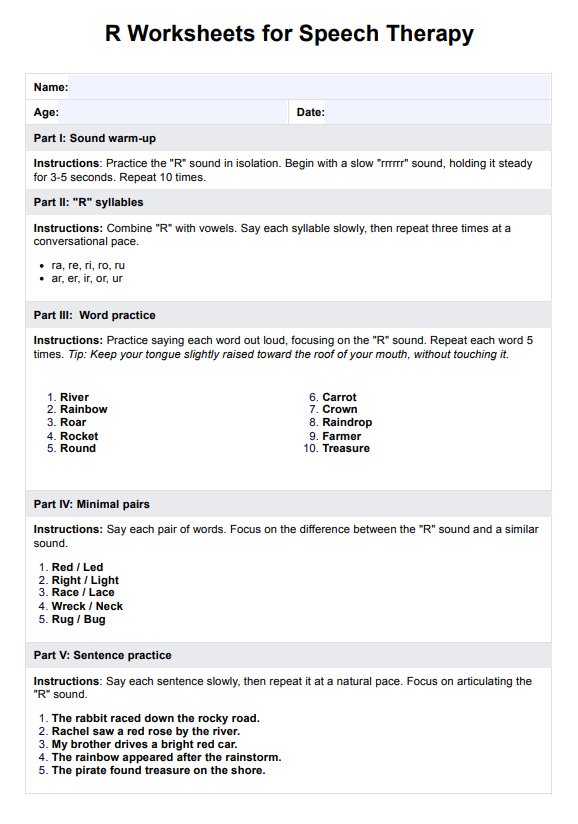This worksheet is designed for articulation therapy, focusing on improving the R sound and related vocalic R sounds such as ar, er, and or. It provides step-by-step articulation practice through activities like drill exercises, word lists, and sentence-level tasks. The targeted approach ensures clients address the correct tongue position and progress from isolated sounds to conversational use of the target sound.

R Worksheets for Speech Therapy
Enhance your sessions with our R Worksheets for Speech Therapy, designed to improve articulation skills. Download the free PDF sample today!
R Worksheets for Speech Therapy Template
Commonly asked questions
Yes, this worksheet is ideal for home practice. It is a free resource for parents or caregivers to support their child's progress outside of speech therapy sessions. The structured format allows for practice at the initial position, word level, and sentence levels, offering a practical and fun way to reinforce skills learned during therapy.
This worksheet incorporates articulation fun through drill practice, articulation activities, and fun activities like tongue twisters and articulation exercises. Focusing on engaging tasks that target specific speech sounds, such as R blends and vocalic R words, motivates students to improve their skills while enjoying the learning process. This approach is particularly effective for younger students and those working on social skills in therapy.
EHR and practice management software
Get started for free
*No credit card required
Free
$0/usd
Unlimited clients
Telehealth
1GB of storage
Client portal text
Automated billing and online payments











